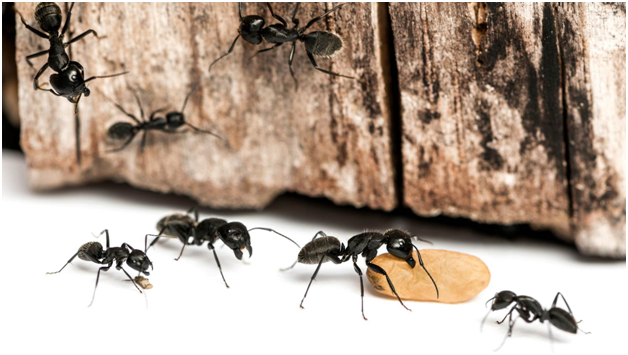
Introduction
Ant infestations can be a homeowner’s nightmare, leading to unsightly trails of tiny invaders in your kitchen, pantry, and even your garden. While eliminating ants once they’ve infiltrated your home is possible, taking a proactive long-term approach to keep your home ant-free is far more effective. In this blog post, we’ll explore the strategies and practices that will help you maintain an ant-free home through preventive measures and regular inspections.
The Importance of Prevention
Prevention is the key to maintaining an ant-free home. Ants are incredibly resourceful creatures, and once they find a food source in your home, they’ll establish a trail to it, attracting even more ants. By implementing preventive measures, you can make your home less appealing to ants in the first place.
1. Maintain a Clean Environment
A clean home is less likely to attract ants. Regularly clean your kitchen, dining area, and food storage spaces. Here are some cleaning tips:
- Wipe down countertops and tables to remove crumbs and food residue.
- Sweep or vacuum the floors to pick up food particles.
- Empty trash cans regularly, and ensure they have tight-fitting lids.
- Store food in airtight containers, both in your pantry and refrigerator.
2. Seal Entry Points
Ants often find their way into homes through tiny cracks and openings. Seal these entry points to prevent their intrusion. Here’s what you can do:
- Inspect your home’s exterior for cracks and gaps, especially around windows and doors.
- Use caulk or weatherstripping to seal any gaps you find.
- Check for gaps around utility lines entering your home and seal them as well.
3. Remove Outdoor Attractions
Ants may be drawn to your home if there are outdoor attractions that provide food or shelter. Here are some outdoor preventive measures:
- Trim back tree branches and shrubs that touch or overhang your home, as ants can use these as bridges to gain access.
- Keep outdoor trash cans clean and sealed.
- Avoid leaving pet food outside for extended periods.
4. Regular Inspections
Even with the best preventive measures in place, it’s essential to conduct regular inspections to catch any potential ant problems before they escalate.
5. Inspect the Perimeter
Walk around the exterior of your home and inspect for any signs of ant activity. Look for ant trails, nests, or any areas where ants may be congregating. Pay particular attention to the foundation and entry points.
6. Check Indoors
Inside your home, inspect all rooms, especially the kitchen, pantry, and areas where food is stored. Look for any signs of ant activity, such as trails, small piles of dirt, or discarded ant wings.
7. Address Issues Promptly
If you discover any signs of ant activity during your inspections, take immediate action. Here’s what to do:
- Identify the ant species, if possible, as different species may require different treatment methods.
- Locate and eliminate the ant nest if it’s indoors. Follow the trail to find it.
- Use ant baits or traps strategically, placing them along ant trails or near their entry points.
Long-Term Ant Control
Maintaining an ant-free home isn’t just about preventing infestations; it’s also about long-term ant control. Here are some additional strategies for keeping ants at bay:
8. Use Ant Repellents
Consider using natural ant repellents in areas where you want to discourage ants from entering. Common natural repellents include:
- Peppermint oil
- Lemon juice
- Cinnamon
- Vinegar
Apply these repellents along potential entry points, such as windowsills and door thresholds.
9. Regularly Clean Outdoor Spaces
Ants can build nests in your yard, garden, or outdoor structures. Regularly clean these areas to discourage ant activity. Remove leaf litter, old logs, and any debris that ants could use to build nests.
10. Professional Pest Control
If you find it challenging to control ant infestations on your own, or if you have recurring ant problems despite your efforts, consider hiring a professional pest control service. They have the expertise and tools to identify and eliminate ant colonies effectively.
Conclusion
Maintaining an ant-free home is an ongoing process that requires a combination of preventive measures, regular inspections, and prompt action when needed. By following these strategies, you can keep ants from becoming unwanted guests in your home. Remember, prevention is the key to long-term ant control, so stay diligent and enjoy a pest-free living space.

